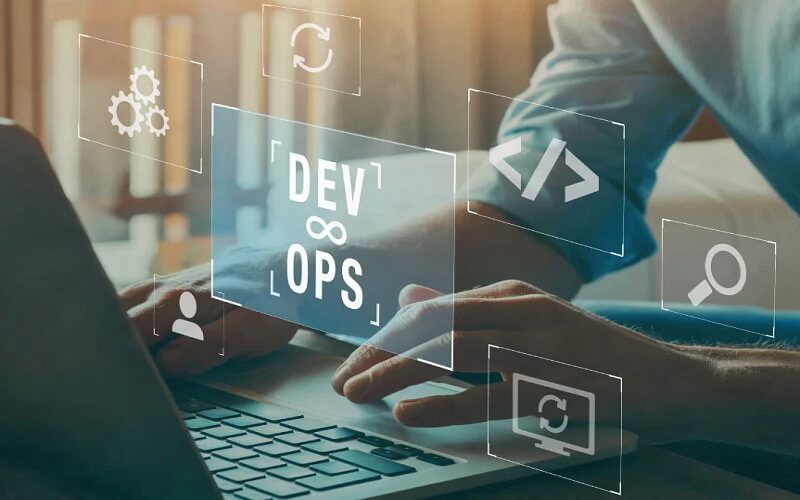The term “DevOps engineer” refers to a group of influential people who have a breadth of knowledge and years of practical experience in relation to a wide range of open-source technologies and tools. They come equipped with core characteristics such as the ability to code and script, skills in data management, and a strong concentration on the results of business activities. Receiving a DevOps certification demonstrates to employers that you have reached an expert level of knowledge and skill in the areas of continuous integration and development.
Whether you’re trying to understand how to become a DevOps engineer or take another career path in DevOps, the future looks bright. Consider earning some sort of credential in this area. To quickly become an expert in DevOps, you should enroll in the DevOps Engineer course – Master’s program offered by Simplilearn. This program will assist you in developing the key skills that are required for the job.
There are a number of prerequisites and qualifications that you will need to possess before you can become a DevOps engineer. First and foremost, you need to have prior experience working in both system administration and software development. Second, you need to have a solid understanding of at least one configuration management tool and one scripting language.
Some examples of scripting languages include Python and Ruby (such as Puppet or Chef). Having previous experience working with cloud infrastructure, such as that provided by Amazon Web Services or Google Cloud Platform, is also beneficial. In addition to this, it is strongly recommended that you earn your certification from a reputable organization such as Simplilearn.
Which skills will be necessary for me?
To become a DevOps engineer, you will need, at the very least, fundamental skills in Linux administration and networking, as well as a basic understanding of scripting, in addition to the following DevOps skills:
1. Linux expertise ranging from intermediate to advanced levels
In DevOps, you won’t be installing a server just the once and then logging in occasionally to take care of a few administrative responsibilities. Unless you plan on working as a Windows Server DevOps engineer, you should become familiar with the process of building highly customized Linux images from the ground up. This applies to both virtual machine and container use cases.
2. Intermediate networking skills
There is no such thing as a “network team” in DevOps. Each and every resource on the network is defined by software. To put it another way, networks are included in the definition of infrastructure as code. You will absolutely need to have a firm understanding of the OSI model, IPV4, subnetting, static and stateful firewalling, and DNS at the very least. Advanced cloud certifications typically require candidates to demonstrate competence in these areas.
3. A dedication to using at least one cloud service
Clouds are not the same thing as traditional data centers that are managed. In order to automate workloads in a specific cloud (such as AWS, Azure, or GCP, for example), you need to have a solid understanding of the cloud’s particular semantics. You will need to be aware of the various resources that are available, as well as how they are organized and the qualities that they possess.
4. Infrastructure automation
Once you have an understanding of the resources that are applicable to a cloud, as well as the properties that are associated with those resources, you are ready to automate the creation of those resources using tools such as Terraform and Ansible.
5. Software Development Lifecycle (SDLC), (CI/CD) Pipelines, and Scripting
In DevOps, infrastructure is delivered in a manner analogous to that of application delivery. Therefore, you’ll need to be familiar with the fundamentals of the software development life cycle in order to be successful (SDLC). This includes versioning strategies that make use of source control code management systems such as Git, as well as CI/CD pipelines that make use of programs such as Jenkins and CircleCI. Shell scripts on their own might not be sufficient for completing more complex automation tasks. Scripting languages like Python, Perl, or Ruby, which are more powerful, will frequently be required of you.
6. The technology of containers
You might want to automate the process of creating a VM image for legacy workloads. However, you will be working with containers for any new applications you develop. As a result of this, you need to be familiar with how to create your own Docker images (knowledge of Linux is required! ), as well as how to deploy them using Kubernetes. Behind the scenes, cloud-based infrastructure as a service (FaaS) technology like AWS Lambda uses container technology.
7. Technology that allows for observability
Even though every cloud service offers monitoring dashboards and a set of standard “telemetry” hooks, the vast majority of large businesses make use of third-party monitoring tools, which can be either commercial or open source. Examples of these tools include Prometheus, DynaTrace, Datadog, and the ELK stack.
All of the above-mentioned skills, tools, and programming languages are introduced in a devops engineering course. Enroll in any of the numerous Devops programs offered by Simplilearn, and be a cut above the rest. If you are able to demonstrate that you satisfy each of the requirements listed above, then you should have no trouble becoming a DevOps engineer. Keep in mind that staying current with the most recent trends and technologies in software development, as well as system administration is essential to your success, and you’ll be well on your way to achieving your goals.
The work that a DevOps engineer does with frequent, incremental code testing and deployment is something that they are always interested in and comfortable doing. It is anticipated that these individuals, who have a solid understanding of the various automation tools, will speed up and advance the business while simultaneously providing a more advantageous technological advantage. In a nutshell, a DevOps engineer needs to have a strong interest in scripting and coding, the ability to take care of deployment automation, the capability to computerize frameworks, and the ability to deal with the version control system.



